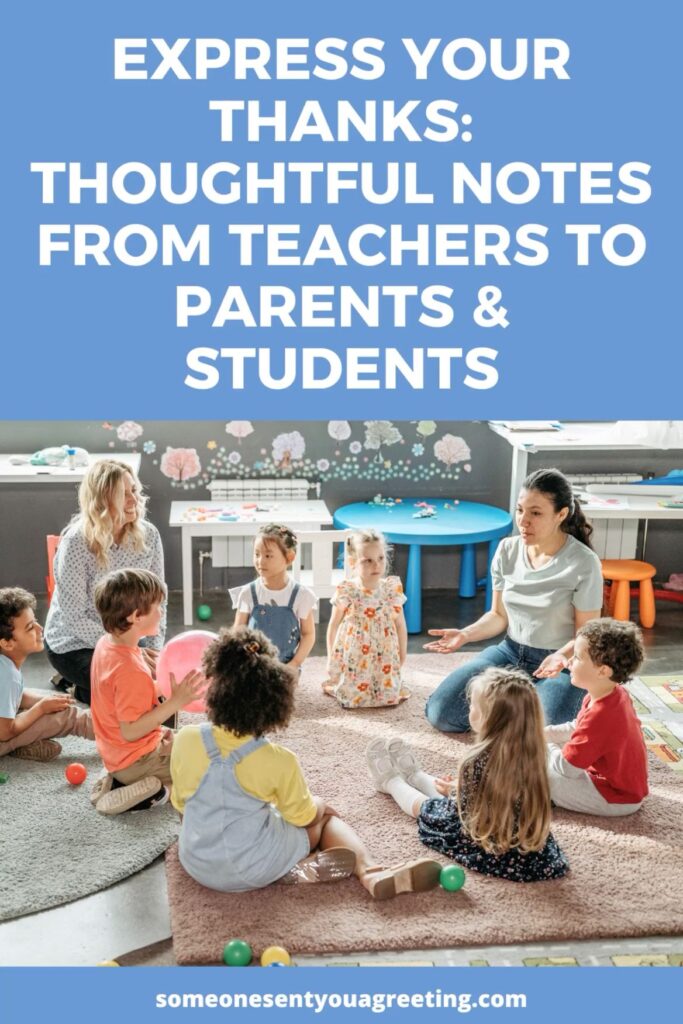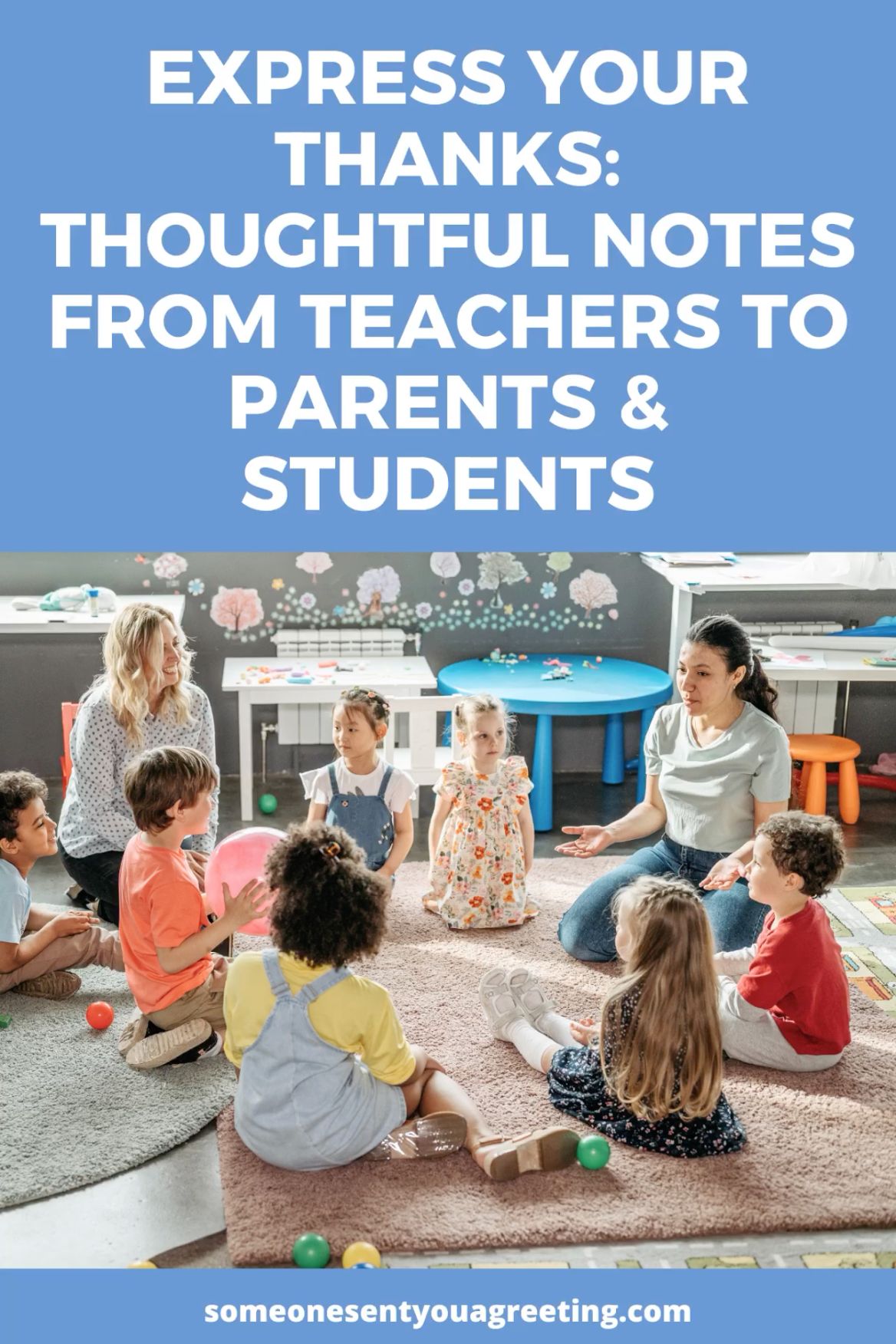
The Power of Gratitude: Thank You Cards from Teachers to Parents
In the realm of education, the partnership between teachers and parents is paramount to a child’s success. While report cards and parent-teacher conferences often dominate the communication landscape, a simple yet profound gesture can strengthen this vital relationship: thank you cards from teachers to parents. These cards, imbued with sincerity and appreciation, serve as a powerful reminder of the shared commitment to nurturing young minds. This article explores the significance of these expressions of gratitude, their impact on both teachers and parents, and provides practical tips for crafting meaningful thank you cards from teachers to parents.
Why Send Thank You Cards?
In today’s fast-paced world, it’s easy to overlook the importance of expressing gratitude. Sending thank you cards from teachers to parents is more than just a polite gesture; it’s a strategic way to foster a positive and collaborative environment. These cards can:
- Strengthen Relationships: A heartfelt thank you shows parents that their efforts are recognized and valued, building trust and rapport.
- Improve Communication: When parents feel appreciated, they are more likely to engage in open and honest communication with the teacher.
- Boost Parent Involvement: Parents who feel acknowledged for their contributions are more inclined to actively participate in their child’s education.
- Create a Positive Classroom Culture: A culture of gratitude extends beyond the teacher-parent relationship and permeates the entire classroom, fostering a supportive and encouraging atmosphere.
- Enhance Teacher Morale: Taking the time to express gratitude can also boost the teacher’s own morale and sense of purpose.
What to Include in a Thank You Card
Crafting a meaningful thank you card from teachers to parents doesn’t require elaborate prose. The key is to be genuine, specific, and heartfelt. Here are some elements to consider including:
Express Sincere Appreciation
Begin by expressing your sincere gratitude for the parent’s contributions. Use phrases like:
- “Thank you so much for…”
- “I truly appreciate…”
- “I am grateful for…”
Be Specific
Instead of simply saying “Thank you for your support,” provide specific examples of the parent’s actions that you appreciate. For example:
- “Thank you so much for volunteering in the classroom. Your help with the reading groups was invaluable.”
- “I truly appreciate you taking the time to meet with me to discuss [child’s name]’s progress. Your input was very helpful.”
- “I am grateful for your consistent support in ensuring [child’s name] completes their homework. It makes a significant difference in their learning.”
Highlight the Impact
Explain how the parent’s actions have positively impacted the child or the classroom as a whole. For example:
- “Your support with [child’s name]’s reading has helped them gain confidence and improve their comprehension skills.”
- “Your willingness to provide supplies for our art projects has allowed us to offer more enriching and creative activities for all the students.”
- “Your consistent communication has helped me better understand [child’s name]’s needs and provide them with the best possible support.”
Offer Words of Encouragement
End the card with words of encouragement and a reaffirmation of your partnership. For example:
- “I look forward to continuing to work with you to support [child’s name]’s success.”
- “Your involvement is truly appreciated, and I value our partnership in [child’s name]’s education.”
- “Thank you again for your unwavering support. Together, we can help [child’s name] reach their full potential.”
Keep it Concise and Personal
While being specific is important, keep the card concise and to the point. A few well-chosen words are more impactful than a lengthy, generic message. Handwrite the card whenever possible to add a personal touch.
When to Send Thank You Cards
There are numerous occasions when sending thank you cards from teachers to parents is appropriate. Some common examples include:
- After Parent-Teacher Conferences: Thank parents for taking the time to attend the conference and for their valuable input.
- After Volunteer Efforts: Express gratitude for parents who volunteer in the classroom, chaperone field trips, or assist with school events.
- After Donations or Contributions: Acknowledge parents who donate supplies, money, or other resources to the classroom or school.
- At the End of the School Year: Thank parents for their overall support and partnership throughout the year.
- During Teacher Appreciation Week: While parents often show their appreciation for teachers during this week, a reciprocal gesture of gratitude can strengthen the bond.
- For Extraordinary Support: When parents go above and beyond to support their child or the classroom, a thank you card is a particularly meaningful way to acknowledge their efforts.
Examples of Thank You Card Messages
Here are a few examples of thank you cards from teachers to parents that you can adapt to your specific situation:
Example 1:
Dear Mr. and Mrs. Johnson,
Thank you so much for taking the time to meet with me during parent-teacher conferences. I truly appreciate your insights into Sarah’s learning style and your commitment to supporting her academic growth. Your questions and concerns were very helpful, and I look forward to working with you to ensure Sarah continues to thrive in my classroom.
Sincerely,
Ms. Smith
Example 2:
Dear Ms. Davis,
I am so grateful for your help in organizing the class field trip to the museum. Your willingness to volunteer your time and energy made the trip a huge success. The students learned so much, and I couldn’t have done it without you.
With sincere appreciation,
Mr. Brown
Example 3:
Dear Mr. and Mrs. Garcia,
Thank you for your generous donation of art supplies to our classroom. Your contribution has allowed us to offer more enriching and creative activities for all the students. I know they will all enjoy using the new paints and brushes.
Warmly,
Ms. Lee
The Long-Term Benefits
The benefits of sending thank you cards from teachers to parents extend far beyond a simple expression of gratitude. These cards can contribute to a stronger school community, improved student outcomes, and a more positive and supportive learning environment. By taking the time to acknowledge and appreciate the efforts of parents, teachers can foster a collaborative partnership that benefits everyone involved.
Moreover, consistent communication and gratitude can lead to increased parental involvement. Studies show that actively involved parents contribute significantly to a child’s academic success. Thank you cards from teachers to parents can be a catalyst for this involvement, encouraging parents to participate in school activities, volunteer their time, and support their child’s learning at home.
In conclusion, the power of gratitude should not be underestimated. Thank you cards from teachers to parents are a simple yet effective way to strengthen relationships, improve communication, and foster a positive learning environment. By incorporating this practice into their routine, teachers can create a more collaborative and supportive partnership with parents, ultimately benefiting the students they serve. Consider implementing a strategy to regularly send thank you cards from teachers to parents to foster a stronger school community.
These thank you cards from teachers to parents also help create a positive feedback loop, encouraging parents to continue their support and involvement. The impact of a well-crafted thank you card from teachers to parents can resonate far beyond the initial gesture, fostering a sense of shared responsibility and commitment to the child’s education.
[See also: Building Strong Parent-Teacher Relationships] [See also: Effective Communication Strategies for Teachers]

